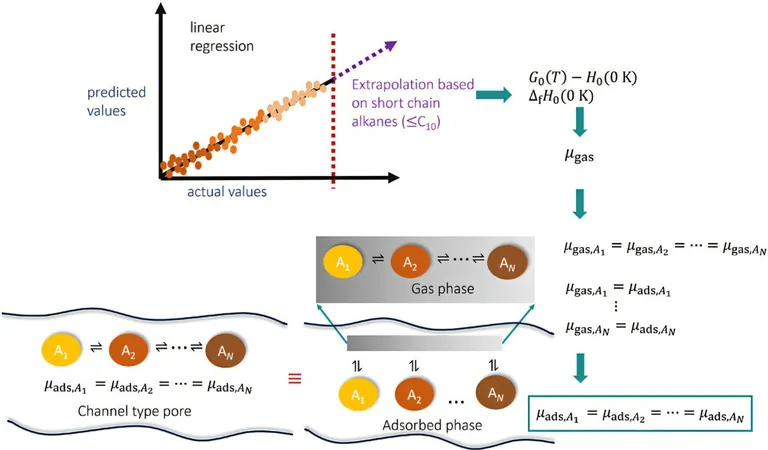
Filgotinib Proves Efficacious for Rheumatoid Arthritis in Latest Extended Studies
2024-11-07
Author: Yu
Introduction
In an exciting development for rheumatoid arthritis (RA) treatment, the long-term findings from the FINCH 4 study, spanning an impressive 156 weeks, reaffirm the effectiveness and safety of Filgotinib at both 200 mg and 100 mg doses. This study comes as a beacon of hope for patients who have struggled with inadequate responses to traditional therapies.
Research Insights
According to lead investigator Dr. Maya H. Buch, a Clinical Professor of Rheumatology at the University of Manchester, these results underscore Filgotinib's role as a robust treatment option for RA patients, especially those who haven't adequately responded to previous disease-modifying anti-rheumatic drugs (DMARDs). “While we noted some numerical differences in remission maintenance between the two doses, the 100 mg dosage was nearly as effective as the 200 mg, especially for patients who may have contraindications for higher doses, including older adults and those with certain health risks,” Dr. Buch remarked.
Filgotinib's Mechanism and Studies
Filgotinib, a selective JAK1 inhibitor, was evaluated across three phase 3 trials—FINCH 1, FINCH 2, and FINCH 3—demonstrating significant efficacy compared to placebo and methotrexate treatment groups. Those who participated in these studies were invited to continue into the FINCH 4 long-term extension, further cementing Filgotinib's place in RA management.
Effectiveness and Outcomes
In the FINCH 4 findings, 60.2% of participants receiving the 200 mg dose and 54.6% of those on the 100 mg dose recorded at least a 20% improvement in RA symptoms after 156 weeks. Additionally, remission rates under varying criteria (Boolean 1.0 and Boolean 2.0) were promising, ranging from 15.4% to 21.1% for the de novo 100 mg and 200 mg treatment groups, respectively.
Safety Profile
The safety profile of Filgotinib remained consistent with previous studies, suggesting that long-term treatment is safe for patients with RA. An analysis presented at the 2024 European Congress of Rheumatology (EULAR) highlighted the incidence rate of serious infections and zoster in patients on Filgotinib, revealing that both doses did not raise significant safety concerns over more than three years of use. Interestingly, all-cause mortality rates were found to be similar across both dosing cohorts.
Conclusion
In summary, the latest findings from the FINCH 4 study not only validate Filgotinib's ongoing efficacy for RA but also shed light on its safety profile in diverse patient populations. Patients and healthcare providers alike now have further reassurance that Filgotinib remains a viable and effective option in the toolbox of RA therapies, keeping hope alive in the fight against this chronic condition.
Future Outlook
Stay tuned for further updates on groundbreaking treatments that continue to shape the future of rheumatoid arthritis care!





 Brasil (PT)
Brasil (PT)
 Canada (EN)
Canada (EN)
 Chile (ES)
Chile (ES)
 España (ES)
España (ES)
 France (FR)
France (FR)
 Hong Kong (EN)
Hong Kong (EN)
 Italia (IT)
Italia (IT)
 日本 (JA)
日本 (JA)
 Magyarország (HU)
Magyarország (HU)
 Norge (NO)
Norge (NO)
 Polska (PL)
Polska (PL)
 Schweiz (DE)
Schweiz (DE)
 Singapore (EN)
Singapore (EN)
 Sverige (SV)
Sverige (SV)
 Suomi (FI)
Suomi (FI)
 Türkiye (TR)
Türkiye (TR)